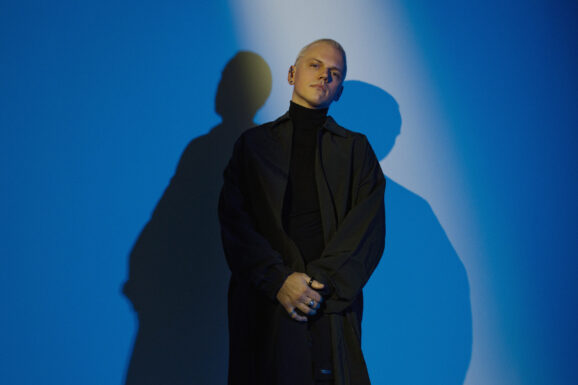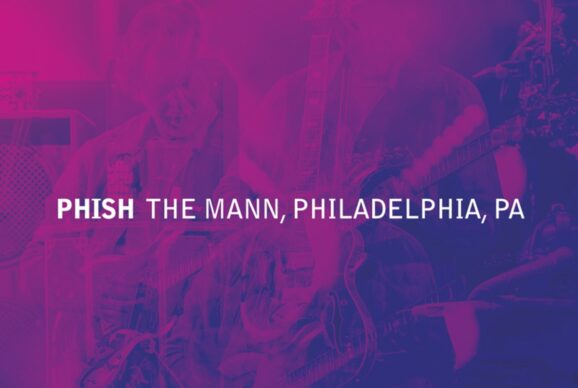It didn’t take an entire decade’s hindsight to hear Tom Petty and the Heartbreaker’s Hypnotic Eye (released 7/29/14) as a testament to the impeccable recording artistry of a truly great rock and roll band. Promoted with a forward-thinking marketing plan including the streaming of a handful of tracks, what turned out to be the group’s final long-player–unbeknownst at the time to anyone involved–is the only album under the leader’s name (solo or otherwise) to reach the top spot on the sales charts of the times.
Just as TP/HB earned their commercial success, so too did they fulfill their craftsmanlike ambitions. In addition, this thirteenth LP of theirs also works as a logical extension of its predecessor: 2010’s Mojo was deliberately conceived and executed as spontaneously as possible, with a blues-based slant the likes of which had never before been so apparent on any of the band’s long-players.
But further continuity lies beneath the surface of these two records. Both Mojo and Hypnotic Eye sound like odes to perseverance and creative endurance. Petty and the Heartbreakers’ prolific nature fused with a staunch work ethic, the combination of which would not allow them to relax into complacency or succumb to the temptation to repeat themselves. As a result, the deceptively conventional nature of Hypnotic Eye aligns with the connection to roots embodied by the prior album.
There’s no overtly thematic undercurrent to the former record. By the same token, though, “American Dream Plan B,” is not just another song aimed solely at a disenfranchised/dislocated/dysfunctional demographic: it could serve as a self-referential cautionary tale about the pitfalls of stardom Petty and his band worked to avoid. Likewise, while “Fault Lines” might well be a paean to the relocated Los Angeleno’s earthquake-ridden adopted state, the number also works as an introspective commentary on the fissures in his own psyche that his celebrity may have camouflaged (as his co-author and guitarist Mike Campbell no doubt observed in their years of close collaboration).
TP and company are not inclined to take anything for granted, least of all their bond as a band. Accordingly, it’s hardly a surprise that, on both these tracks, the sextet rocks as hard or harder than at any other time in its history. As evidence of sophistication in arranging, some acoustic guitar appears within the bridge of the former of that aforementioned pair, but only to contrast Campbell’s solos: his playing has all the cacophonous edge of his guitar playing at its most spontaneous. Meanwhile, on that second number, Steve Ferrone’s drumming drives the whole unit forward at a near-breakneck pace.
Somewhat oddly, though, keyboardist Benmont Tench is virtually inaudible there. A potential solo interval is given over to latter-day Heartbreaker Scott Thurston’s harmonica, so the keyboardist’s arcing organ lines instead cushion the motion of the band on the slightly more reflective”Red River.” In his supporting role in the Heartbreakers, Tench’s presence is ironically often more noticeable in its absence, if only because it opens up space in the sound that benefits the arrangement. His humility and self-discipline is a hallmark of the entire ensemble.
Still, the solidarity of this unit has never been more self-evident than on the eleven cuts of Hypnotic Eye. And that’s true in the most pragmatic of terms: apart from the sextet, there are no sit-ins except Petty and Cambell’s co-producer and engineer Ryan Ulyate’s background vocals on “Sins of My Youth” and Josh Jove’s fuzz guitar on “Forgotten Man.”
It’s no accident, either, that the union of Tom Petty and the Heartbreakers sounds so formidable on cuts like “All You Can Carry.” After leaving the group in 1981 for twenty-one years, original bassist Ron Blair had been in place throughout the previous album (the first TP/HB project in eight years). It is thus no wonder “Forgotten Man” echoes more than one selection on the group’s eponymous debut and its You’re Gonna Get It follow-up of 1978.
Purposeful as is the musicianship and production on this thirteenth album of TP and company, so too is the packaging. In contrast to the quasi-3D graphics like those of the front cover, printing all the lyrics in the enclosed twelve-page booklet renders the verbiage of “Sins Of My Youth” as straightforward to read as it is to hear the prominent electric guitar and organ. And because Tom Petty eschews affectation or posing, he sings with a delivery in which he sounds as uplifted by the playing around him as by his own candid words: ‘Oh, let me tell you the truth…I love you more than the sins of my youth.’
The very next cut, “U Get Me High,” is emblematic of the LP’s savvy track sequencing. Chanting vocals introduce the refrain of the title in a song that begins, ‘I remember feeling like this…I think it was as a child.’ Such clarity of mind stands out in sharp relief against the noisy accompaniment, but there’s little a definite sense the singers and players revel in both those elements of the arrangement and material.
Adorned with more harp and some barrelhouse piano from Tench, this latter piece, a modified shuffle, hints it would not have been out of place on the preceding album. Or that Hypnotic Eye might’ve been combined with Mojo for a double set positing an expansive personal and artistic statement. Of course, Petty had learned the downside of wayward ambition working on 1985’s Southern Accents, so it only stands to reason he would evince mature self-discipline through the relatively no-frills approach of this effort.
The late singer/songwriter/musician/bandleader literally walked the walk as forcefully as he talked the talk during the whole of his public life, but never more so (literally) than at this point late in his career. Afflicted with a fractured hip, the no-nonsense native Floridian nevertheless refused to cancel a 40th-anniversary tour in 2017 and saw it through until its completion (at no small amount of progressively severe discomfort, at least according to Campbell).
With that additional hindsight at hand, in addition to the broad perspective of ten years on Hypnotic Eye, it’s impossible not to hope the ever-so-brief acoustic interlude following the record’s final track, “Shadow People” (reminiscent of “Her Majesty” on the Beatles’ Abbey Road), was a portent of even greater things to come for Tom Petty upon his departure from this material world.









